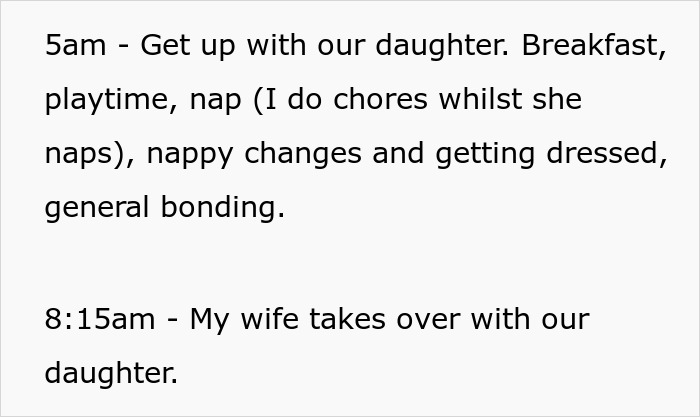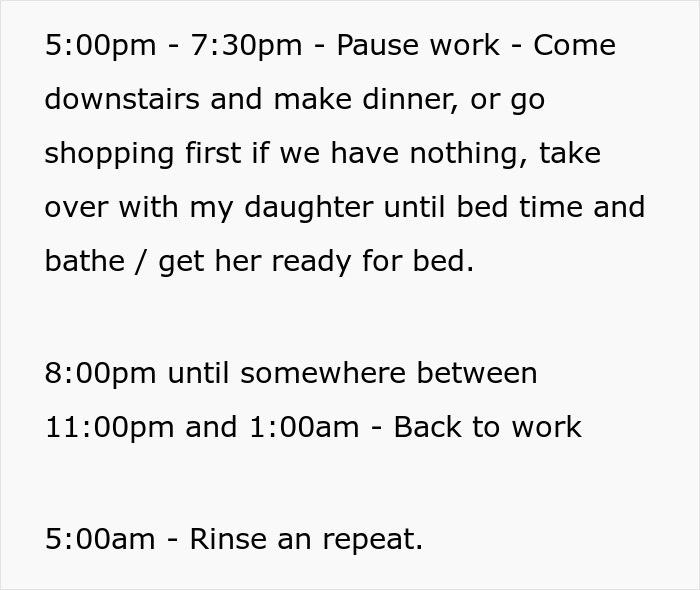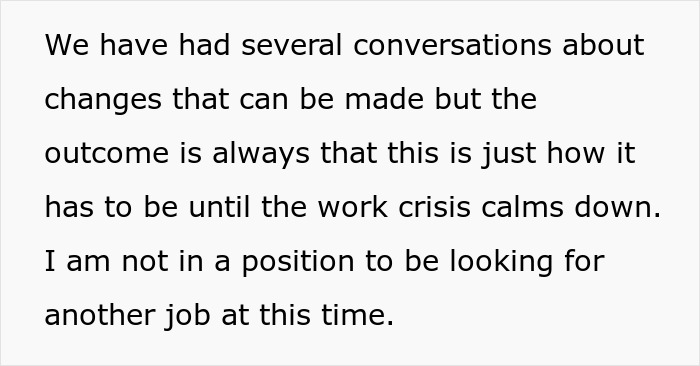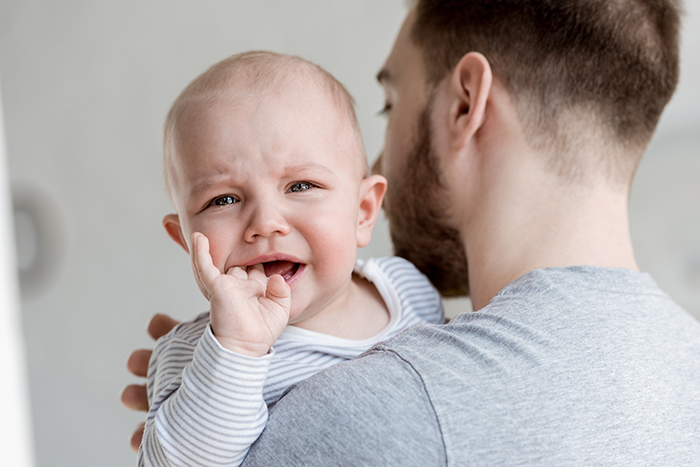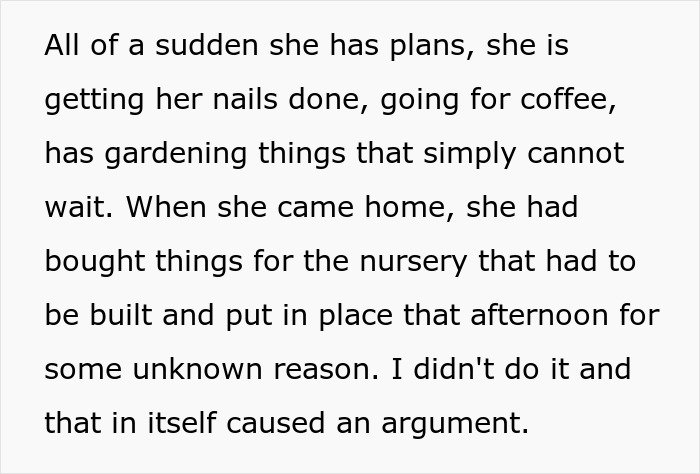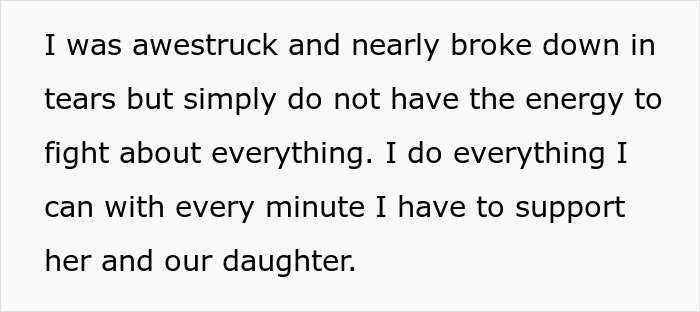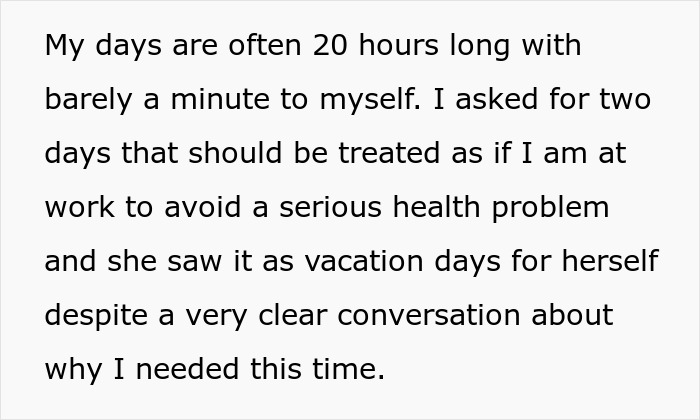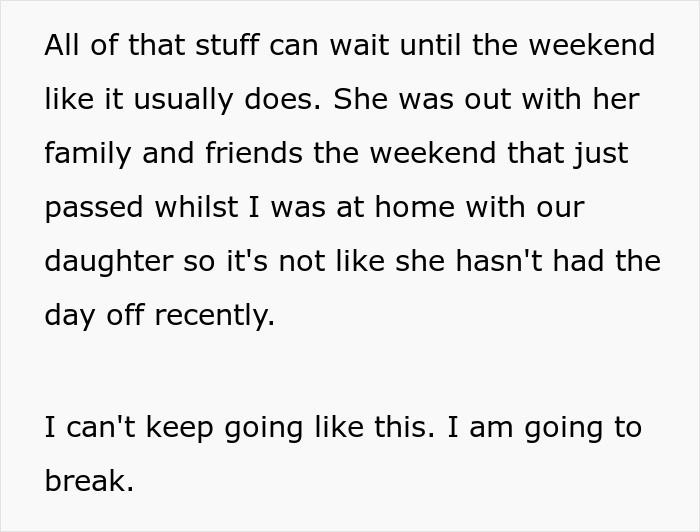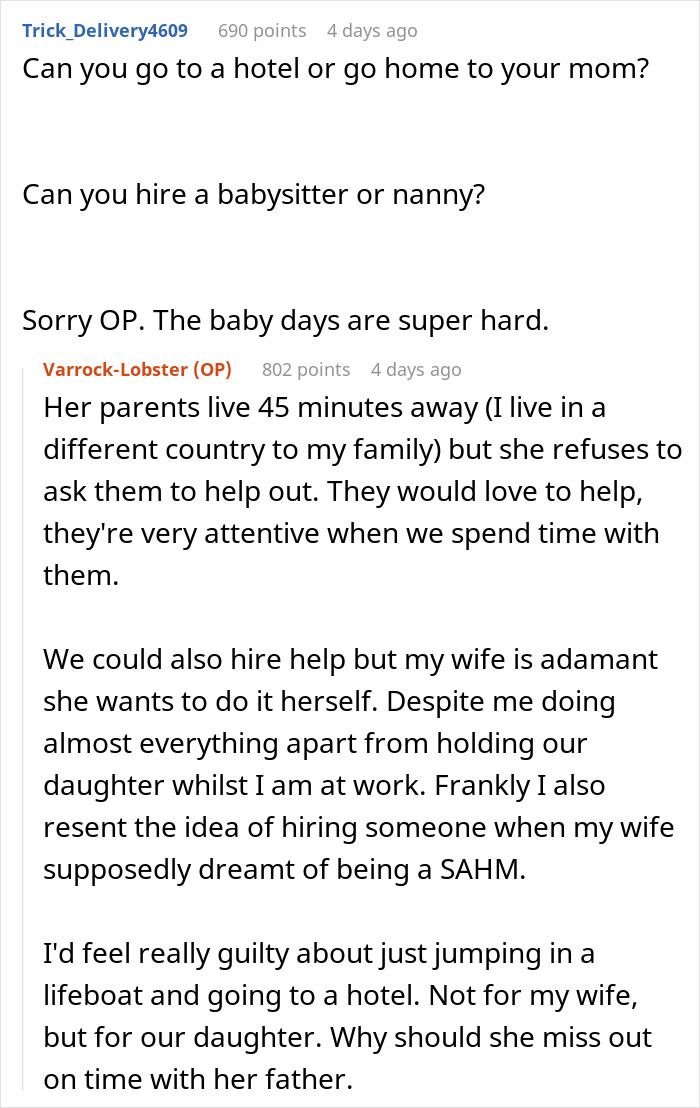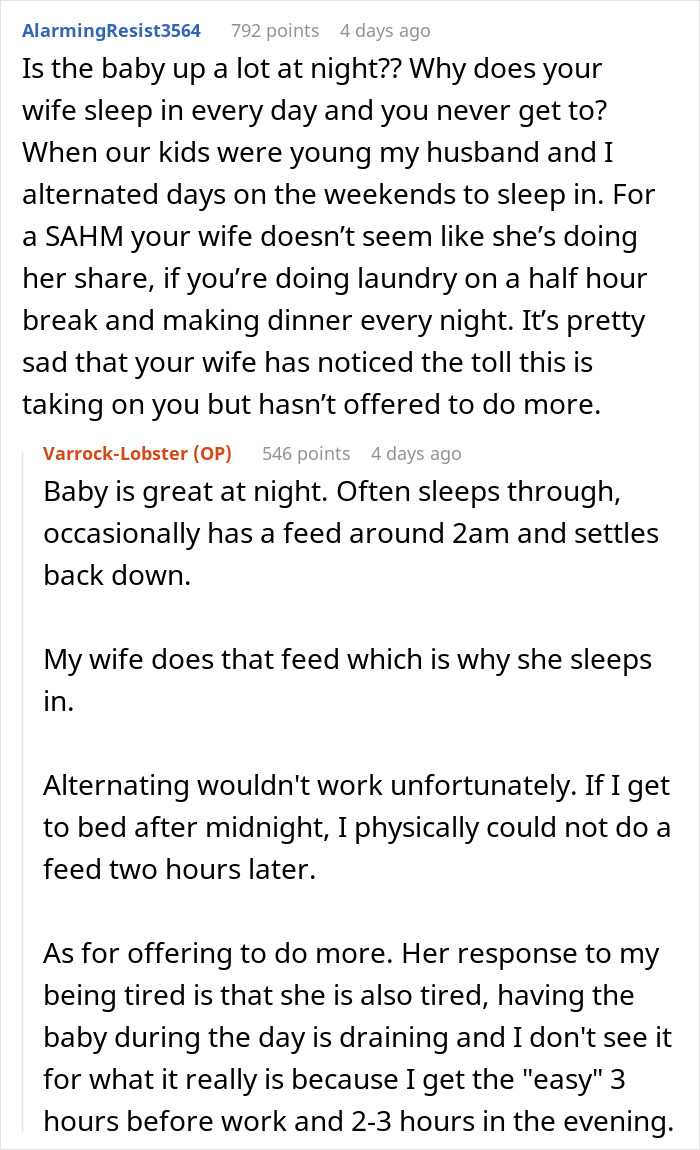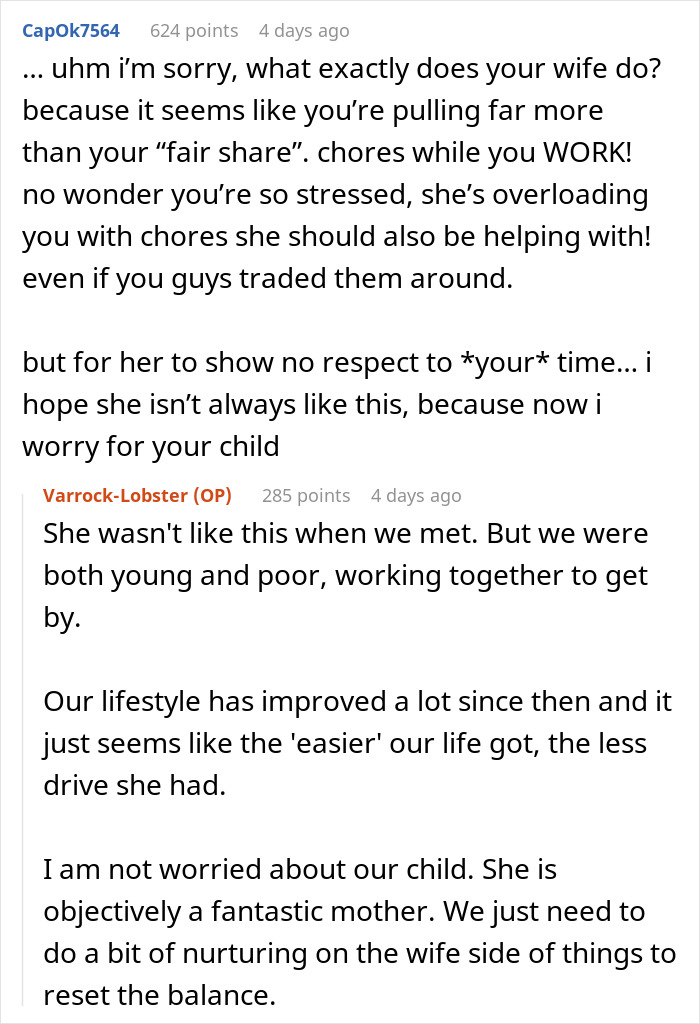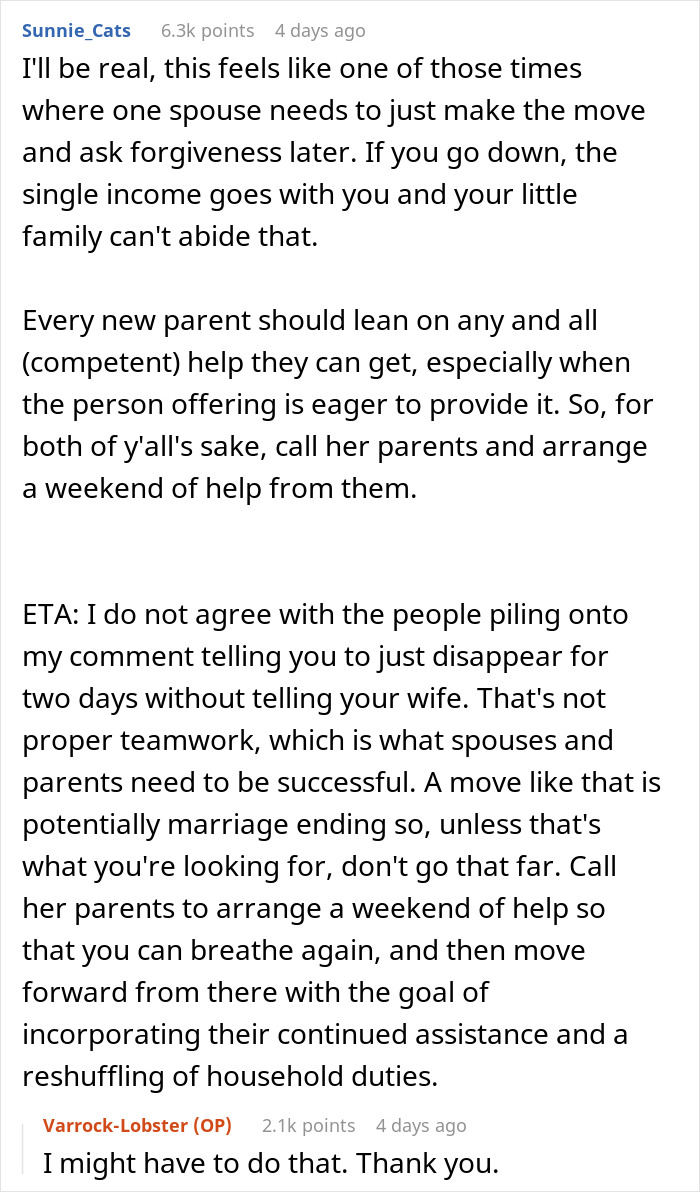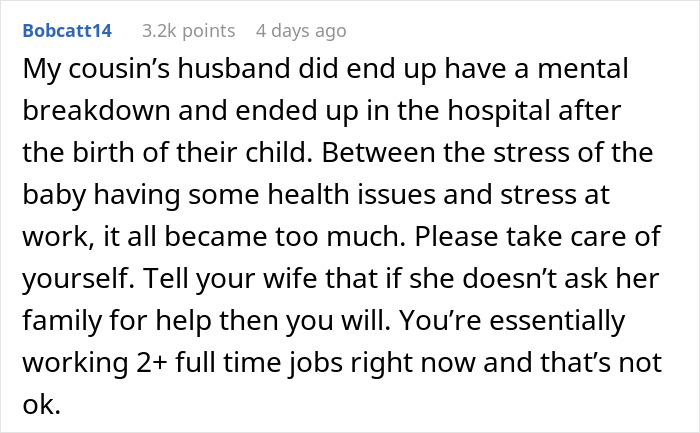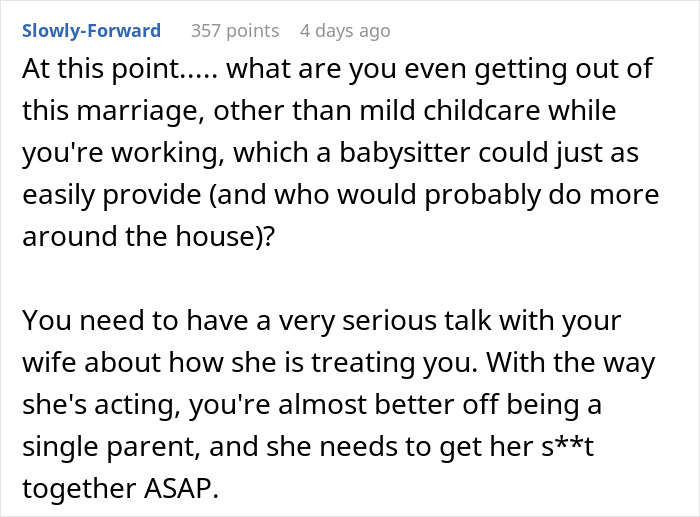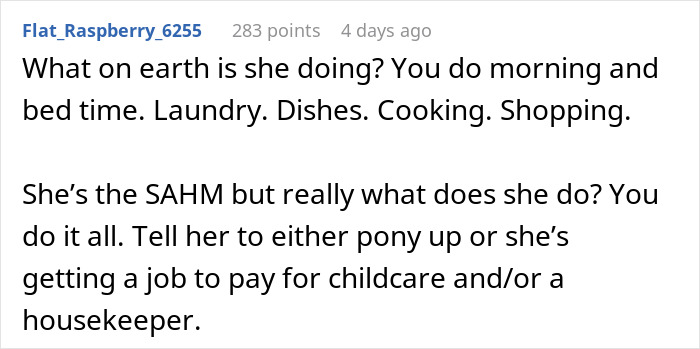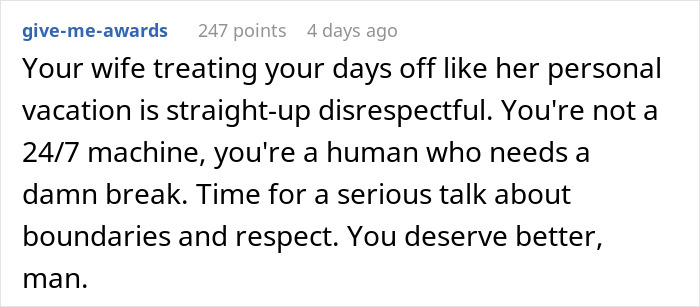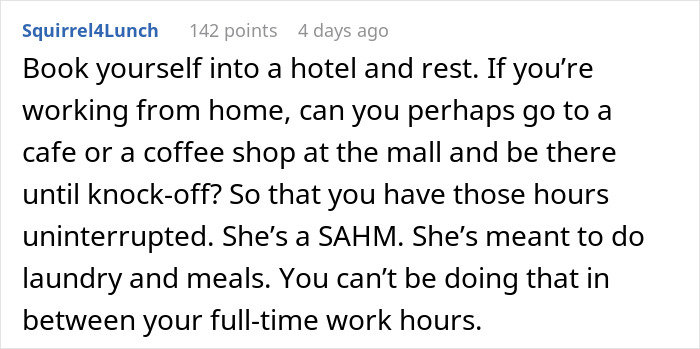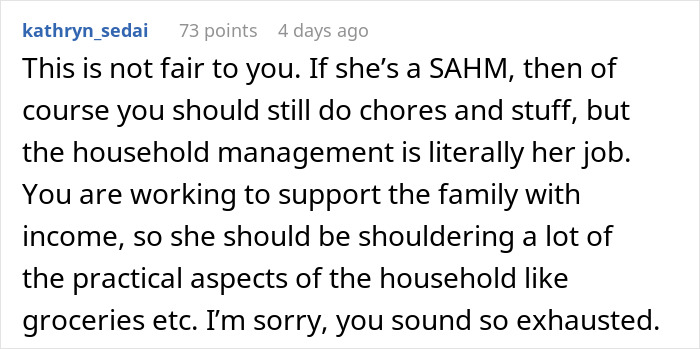That’s exactly the position the redditor u/Varrock-Lobster found himself in. Certain unfortunate circumstances at work together with having just recently become a father resulted in the new dad nearly reaching a breaking point, which is why he took a few days off. And even though he and his wife had discussed the time off, she had other plans for him than getting rest. Seeking to learn more about the importance of sharing responsibilities at home and the burnout parents might experience, Bored Panda got in touch with the Professor of Psychology at the University of Mary Washington and author of Balancing The Big Stuff: Finding Happiness in Work Family and Life, Miriam Liss, who was kind enough to answer a few of our questions. You will find her thoughts in the text below.
Balancing work and personal life is not an easy task, especially after having just become a parent
Share icon Image credits: nd3000 / envato (not the actual photo)
This man was on the verge of burnout, so he took some days off, which he then had to spend taking care of the baby
Share icon Share icon
Share icon Share icon
Share icon Image credits: josue Verdejo / pexels (not the actual photo) Share icon Share icon
Share icon Share icon Share icon Image credits: LightFieldStudios / envato (not the actual photo)
Image credits: Varrock-Lobster
Recent surveys found that close to nine-in-ten employees have experienced burnout
Share icon Image credits: Thirdman / pexels (not the actual photo) Avoiding burnout is typically easier said than done, especially when things at work take an unexpected turn for the worse. For this redditor, it was losing a key member of staff that resulted in such a turn. While the reasons the employee was no longer part of the company are unclear, chances are that them leaving made quite a few of their fellow employees think about it, too, as such situations often entail an increased amount of stress and responsibilities for those who stay. A 2024 survey of more than 1,200 US-based employed individuals found that an alarmingly high number of them—as many as 88%—claimed burnout. That’s likely to be the reason why roughly one-in-five said they think about quitting their job every day and one-in-four admitted having experienced depression about their job. It’s evident that burnout can lead to numerous detrimental effects, from increased anxiety—which, according to said survey, was the main negative outcome of such a condition—to frequent headaches, chronic muscle pain, and other health-related issues. Consequently, burnout can have a negative effect on one’s personal life, too, as it did for as many as 77% of surveyed respondents. Unsurprisingly, the OP being driven to the verge of burnout only made his personal life more difficult to manage; especially combined with the parenting duties that awaited him at home. Discussing how becoming a parent affects one’s life inside and outside of their home, Prof. Miriam Liss pointed out that quite a few things tend to change in one’s life, including how responsibilities are divided between the new parents. “Research suggests that couples tend to become more traditional after the birth of children,” she said. “Even couples that were egalitarian before having children are likely to revert to more traditional roles – where women do more of the household work and men do more work outside the home. “Research also suggests that even when women continue to work, they still do more of the household labor and childcare, as well as the often invisible and unappreciated mental work of planning and organizing what needs to be done.” However, in the OP’s household, it seemed that the dad was responsible for a larger share of the chores, which might have had something to do with him working from home. “The rise of teleworking has changed the landscape of work-family balance in ways that we are only beginning to understand,” Dr. Liss told Bored Panda. “There are advantages in that time is not lost to commuting. However, when one works from home it can feel as though one is never ‘off.’ So that can be problematic and contribute to burnout. That is why setting work boundaries is important, especially if one is working from home.”
Having to juggle work and parenting duties has proven to be quite stressful
Share icon Image credits: Pavel Danilyuk / pexels (not the actual photo) Unfortunately, the redditor is far from the only parent who has to juggle work and parenting-related duties and often find themselves stressed out of their minds. A recent survey, commissioned by the child-care provider Bright Horizons, found that nine-in-ten working parents are stressed at their jobs, and three in five of them describe their stress as overwhelming. Moms and dads being stressed at work to the extent that it affects their personal lives is such a common phenomenon, it even has its own name – work-family spillover, CNBC reports. As much as 66% of working parents in the US reportedly suffer from burnout, which, according to a Stanford University sociologist, Dr. Marianne Cooper, might lead to being less patient with their kids or simply feeling even more tired, neither of which makes anyone’s quality of life any better. Discussing parental burnout, another expert—the founder of the Postpartum Wellness Center in Boulder, Colorado, Kate Kripke—seconded the idea that it gets incredibly draining. “It’s a state where you have been giving, and giving, and giving and giving—until you’re totally empty,” she told The New York Times. Unsurprisingly, giving his all in both work and parenting left the OP drained, too. Consequently, it made him think over the way parenting duties were divided between him and his wife—a stay-at-home-mom—which some netizens in the comments emphasized, saying that the way the load was shared wasn’t fair. “The sense that things are fair is really important for couples in terms of a variety of outcomes, including relationship satisfaction, sexual satisfaction, and mental health in general. This does not mean that things are split perfectly evenly—there is no objective definition of fair—what is important is perceptions of fairness,” Prof. Liss explained. “A lot of things go into calculations of fairness; if someone is earning more money, the fact that they do less around the house seems more fair (this is called the theory of relative resources). Another thing that contributes to a sense of fairness is social comparison and the sense that one is doing more than other people in one’s social circle.” The expert emphasized that couples need to have open dialogue about who does what and what is considered fair and unfair. “It is also important for members of the couple to feel appreciated and valued. A lot of work that goes into the house is unseen and unappreciated and it is particularly bad for relationships when one member of the couple feels as though their work is not being seen or valued.”
The new dad provided more details in the comments
Fellow netizens shared their views on the situation, some gave suggestions on how to handle it
Anyone can write on Bored Panda. Start writing! Follow Bored Panda on Google News! Follow us on Flipboard.com/@boredpanda!




